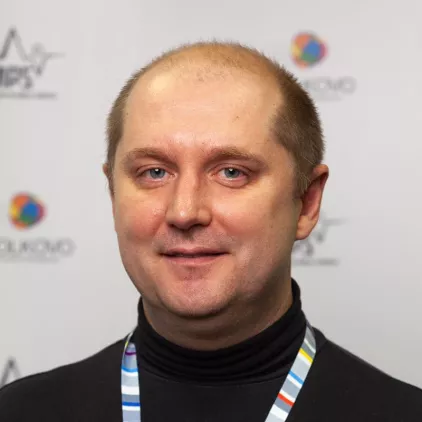

Prof. Dr. Kirill Krinkin
Intelligence Engineering
Creating embodied intelligence systems is a new era of engineering. Engineering's history is a chronicle of human innovation, starting from ancient civilizations till the latest areas like aerospace, electronics, digital technologies, robotics. At its core, engineering is the art of problem-solving through scientific and mathematical principles. It is inherently interdisciplinary, blending knowledge from various sciences to make life on the Planet better and safe.
After humanity discovered and learnt how to reliably engineer physical machines and software systems we face a challenge related to intelligent systems: we need to learn how to engineer the intelligence.
One possible way to think about it is Co-Evolutionary Hybrid Intelligence (CHI) paradigm. It represents a transformative approach to the collaboration between human and artificial intelligence. I focus on thinking about human-machine cognitive co-evolution. More can be found at Co-evolution.ai.
Next generation of operating systems and virtualization technologies
Current desing of operating systems mostly originated from very old impementations of the first systems like Unix. Nevertheless, the ideas developed by Von-Neumann and Turing are still valid, but unfortunately, still not implemented in modern systems. The main challenge in this area is to implement perceptions-feedback loop as we have in living systems. If you think that this idea is new you need to study the fundamental Von-Neumann report where he described this. Modern hardware is capable of implementing this idea, and I am working on it.
Next Generation Education Methods
The world where Large Language Models (LLM) are capable of generating text which can be used as a convenient tool for navigating in the information (I would say data) space is a coming reality. This means that the memorising became less important than ability to think critically and ability to practically apply the knowledge. Being a university teacher I am working on changing education model and transform it to the new reality. I believe, that mastering in creativity supported by immediate world's knowledge body access is a key ingredient of the future education.
Autonomous systems
The development of intelligent, fully autonomous embodied systems (mobile robots) is an extremely good engineering landmark. It is extremely fruitful for scientific research because it unite knowledge from different areas. From one side it is quite challenging, but the nice thing -- you always have the simple quality criteria for your solution: it simple does work or doesn't (This so simple to test!). The collateral beauty of the research of the autonomy is in self-organizing and self defining educational track (They call it STEM -- Science, technology, engineering, math). Studying STEM you always can apply your knowledge now and here.
My research in autonomy is mostly related to the following areas. Computer vision data processing (RGB and RGBD cameras, lidars, radars); SLAM algorithms; Building machine learning models for spatial partitioning tasks; building robust development processes for comprehensive systems like Smart-Cities.
2000 – Engineer on Software, KnASTU
2004 – PhD, Software Engineering (05.13.11), SPb ETU
Lecturer at Computer Science Center
Leader at Open Source Linux Laboratory -- OSLL
Member at FRUCT
Vice-Rector for Digital Transformation at Saint Petersburg State Electrotechnical University "LETI"
CEO at Popov's Institute for Artificial Intelligence, Cybersecurity and Communications, SPbETU at Saint Petersburg State Electrotechnical University "LETI"
Head of Department of Software Engineering and Computer Applications at Saint Petersburg State Electrotechnical University "LETI"
Associated Professor, Computer Science Faculty at Saint Petersburg State Electrotechnical University "LETI"
Head of Lab on Mobile Robot Algorithms at JetBrains Research
Associated Professor at Academic University of Russian Academy of Sciences
Visiting Professor at SATTI at Samsung Electronics
Sr. Software Engineer at EMC